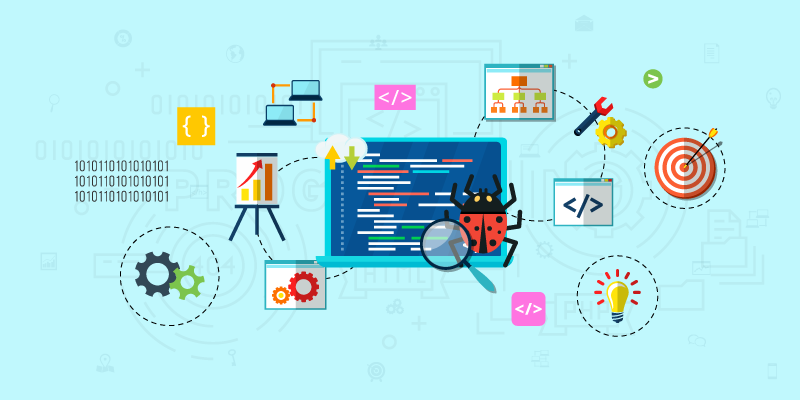
Software Tester (QA Engineer)
Industrial Software Tester (QA Engineer) Jobs: A Comprehensive Guide
As industries become increasingly dependent on technology, the need for reliable and efficient software has never been greater. This demand has led to the rise of the role of Industrial Software Tester (QA Engineer) in various sectors, ensuring that software applications run smoothly, safely, and efficiently.
In this blog post, we’ll dive deep into the role of an Industrial Software Tester (QA Engineer), the essential skills needed, and how one can land such a job. This post will also be updated on the Sharaa Group website for anyone interested in pursuing a career in software quality assurance within industrial sectors.
What is an Industrial Software Tester (QA Engineer)?
An Industrial Software Tester (QA Engineer) is a professional who ensures that industrial software systems are free from defects and perform optimally under all conditions. These testers focus on applications used in sectors like manufacturing, logistics, supply chain, healthcare, automation, and more.
Industrial software is often embedded in machinery, control systems, or other devices used in manufacturing or operations, so quality assurance (QA) in these systems is critical. A QA Engineer typically performs various testing activities such as functional testing, integration testing, performance testing, and automation testing.
Roles and Responsibilities of Industrial Software Testers (QA Engineers)
Industrial Software Testers focus on ensuring that the software meets the following requirements:
- Functional Testing: Verifying that the software works as intended, performing the necessary tasks without failure.
- Performance Testing: Testing how the software handles high workloads, like thousands of transactions or data entries, without crashing or slowing down.
- Usability Testing: Ensuring that the software is user-friendly and intuitive for operators and end-users.
- Security Testing: Ensuring that the software is secure from vulnerabilities and threats, especially critical in industries handling sensitive data or safety protocols.
- Automation: Implementing automated tests to quickly identify defects in complex industrial systems.
- Documentation: Writing detailed reports of bugs, test results, and providing solutions for improvement.
Key Skills Required for Industrial Software Tester (QA Engineer)
To succeed as an Industrial Software Tester, you will need a diverse skill set, including:
- Programming Skills: Familiarity with programming languages such as Python, Java, C++, and scripting for test automation.
- Testing Frameworks and Tools: Knowledge of automated testing tools (Selenium, JUnit, TestNG) and performance testing tools (LoadRunner, Apache JMeter).
- Understanding of Industrial Systems: Familiarity with industrial automation, control systems, SCADA (Supervisory Control and Data Acquisition), PLCs (Programmable Logic Controllers), and IoT devices is highly beneficial.
- Knowledge of Testing Methodologies: Understanding of Agile, Waterfall, and other testing methodologies to adapt to different workflows.
- Attention to Detail: Spotting even the smallest errors or glitches that can lead to larger system failures.
- Problem-Solving Skills: Identifying problems in complex systems and finding the best solutions for efficient operation.
- Communication Skills: Reporting and documenting test results clearly and concisely for stakeholders and developers.
Industrial Software Tester (QA Engineer) Career Path and Opportunities
There are many career growth opportunities within this field. Starting out as a Junior QA Engineer, one can progress to roles such as QA Lead, Test Manager, or even Software Development Engineer in Test (SDET).
Given the rapid advancements in technology and industry-specific software, the demand for skilled QA Engineers will continue to grow. Organizations in manufacturing, automotive, aerospace, healthcare, and even finance are increasingly adopting industrial software solutions and require skilled testers to ensure everything runs seamlessly.
How to Get Started in Industrial Software Testing?
If you’re looking to break into the field of industrial software testing, here’s how you can get started:
-
Education: A degree in Computer Science, Engineering, or a related field is typically required. Some companies also hire individuals with relevant certifications or hands-on experience in testing.
-
Certifications: You can gain certifications from organizations like ISTQB (International Software Testing Qualifications Board) or specialized certifications in industrial testing tools or software.
-
Experience with Industrial Software: Practical knowledge of industrial software systems can be acquired through internships, projects, or hands-on experience in specific industries such as manufacturing, automation, or healthcare.
-
Stay Updated: As industrial technology continues to evolve, staying updated with new testing tools, methodologies, and industrial software trends is crucial.
Conclusion
The role of an Industrial Software Tester (QA Engineer) is essential to ensuring the reliability and functionality of critical software in industries worldwide. With a mix of technical expertise, industry-specific knowledge, and testing methodologies, QA Engineers play a pivotal role in guaranteeing that the software powering industrial systems is fault-free and efficient.

